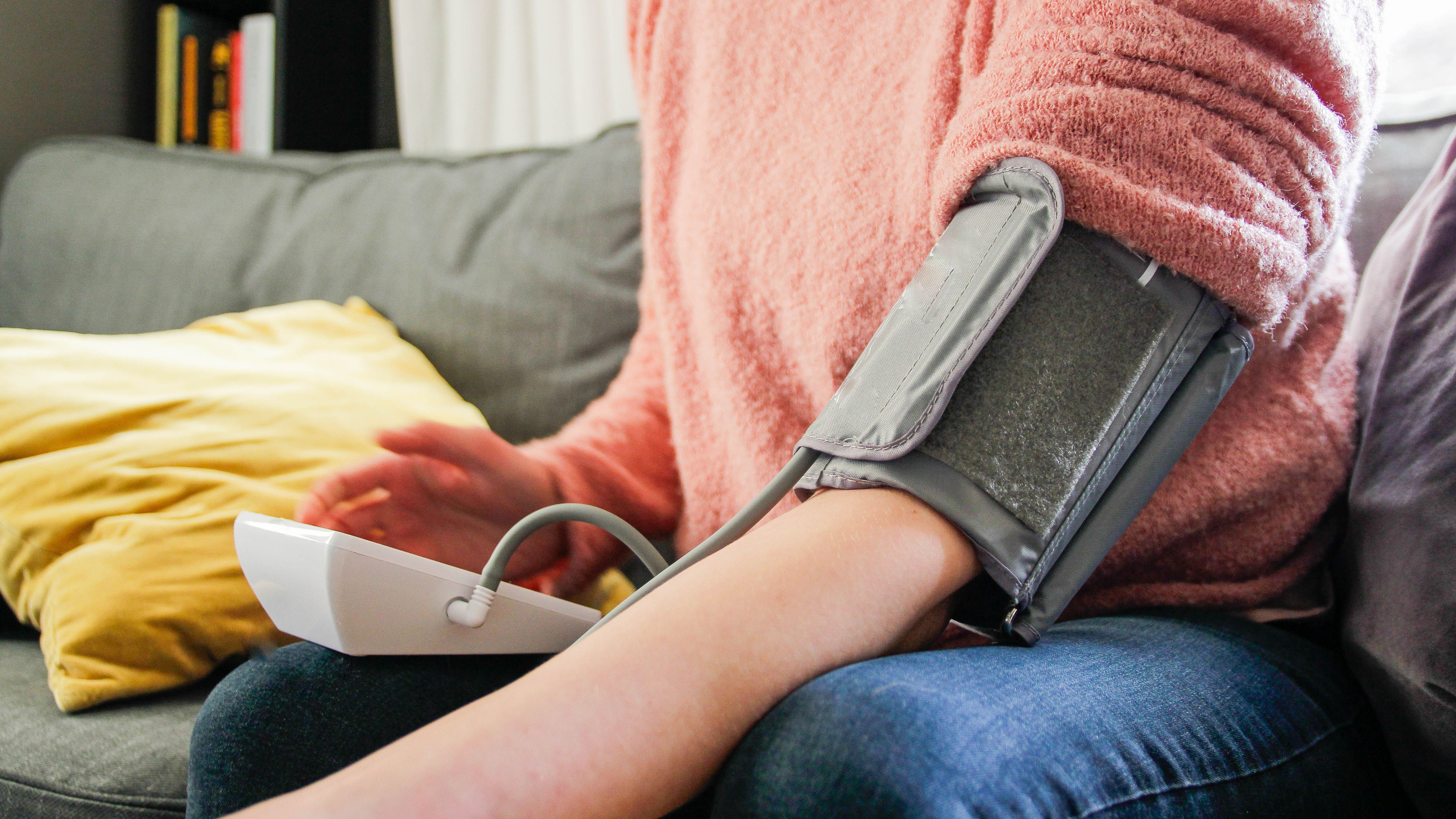Can menopause cause high blood pressure?
Can menopause cause high blood pressure? We spoke to a doctor to find out.


People often think of high blood pressure (hypertension) as a condition that mainly affects men, but this isn’t entirely accurate. While men generally have higher blood pressure than women at similar ages, post-menopause, blood pressure rises more steeply in women. And according to the American Heart Association, females account for almost 52% of deaths resulting from high blood pressure.
Some health practitioners put this down to hormonal changes, but various factors can affect blood pressure. While the best menopause supplements might help you combat certain symptoms, like low libido, they won’t help with serious hypertension problems.
We spoke to a doctor, to unpack exactly how menopause affects this key component of your health.

Dr Ferhat Uddin is a general practitioner (medical doctor) in the UK. She is a menopause expert and the founder of Liberty Health Clinics. Having worked in medical care for over 10 years, she has a wealth of experience diagnosing and helping patients. Her private practice focuses on helping women master the medical, psychological and nutritional aspects of menopause.
Does menopause affect your blood pressure?
Studies have found that during a woman’s reproductive life (from the first period to menopause), she is at a lower overall risk than a man of developing high blood pressure because of the protective effects of estrogen. Estrogen helps keep the blood vessels flexible, so blood can flow more easily. Since women of reproductive age generally have high estrogen levels, they enjoy a relatively broad level of protection from high blood pressure.

Dr Ferhat Uddin, a general practitioner, menopause expert, and the founder of Liberty Health Clinics, explains what happens during menopause, “It’s thought the fall in estrogen after menopause and the ratio/balance of estrogen to other hormones can increase blood pressure. One way this happens is that some women become more sensitive to salt. Menopause is also often associated with weight gain, resulting in insulin resistance and a rise in blood pressure. Generally, the fall in estrogen post-menopause can decrease the elasticity of our blood vessels, increasing the risk of cardiovascular disease.”
According to Blood Pressure UK, a person’s heart attack risk is five times higher after menopause than before. This is likely due to increased blood pressure.
The American Heart Association states that you have an increased risk of developing high blood pressure if you are 20 pounds or more overweight, have a family history of high blood pressure, or have reached menopause.
Start your week with achievable workout ideas, health tips and wellbeing advice in your inbox.
How can you manage your blood pressure?
Dr Uddin says, “Diet, especially reducing salt intake is important; as well as increasing exercise and managing weight. A small amount of weight loss can have a significant effect in bringing down blood pressure. Hormone replacement therapy (HRT), only if used transdermally (patch, gel, or spray), will have a positive effect on reducing blood pressure. HRT when started within 10 years of menopause will reduce cardiovascular risk in women.

There are many steps a person can take to manage their blood pressure and lower their risk of developing complications from high blood pressure. The Centres for Disease Control and Prevention (CDC) recommends:
- Taking regular blood pressure readings: High blood pressure typically does not cause any symptoms, so the only way to know if you have high blood pressure is to check it regularly. You can speak with your doctor about getting a blood pressure check or purchase your own blood pressure monitor and check it yourself at home. The latter option may be more convenient for people diagnosed with hypertension and those at increased risk of developing the condition.
- If you smoke, try to quit: Smoking raises your blood pressure and puts you at higher risk for heart attack and stroke. If you smoke, quitting will lower your risk for heart disease. Your doctor can suggest ways to help you stop.
- Exercise: Physical activity can help keep you at a healthy weight and lower your blood pressure. The Physical Activity Guidelines for Americans recommend that adults get at least two hours and 30 minutes of moderate-intensity exercise every week, such as brisk walking or cycling.
- Eat a heart-healthy diet: To get the nutrients you need, the American Heart Association recommends eating a dietary pattern that emphasizes fruits, vegetables, whole grains, low-fat dairy products, poultry, fish, and nuts, while limiting red meat and sugary foods and beverages.
- Limit your alcohol intake: Do not drink too much alcohol, which can raise your blood pressure. The CDC recommends men should have no more than two alcoholic drinks per day, and women should have no more than one alcoholic drink per day.
- Take medications according to the doctor’s instructions: People with high blood pressure must take all medications their doctor prescribes, even if they feel well. Hypertension typically does not cause any symptoms, so a person may feel completely well until a complication of high blood pressure occurs, such as a stroke.
When should you see a doctor about menopause symptoms?
If you’re not sure that the symptoms you’re experiencing are related to menopause, talk to your doctor about them. They can give you information about menopause and help you cope with common symptoms. If your symptoms are severe or are disrupting your life, your doctor may recommend one or more treatments.
Dr Uddin says, “Symptoms that are troubling you should always be discussed with your doctor. Common symptoms often overlooked are anxiety, mood changes, brain fog, poor concentration and lack of energy and drive. HRT can alleviate these symptoms safely for many women.”
It’s important to remember that high blood pressure doesn’t usually have symptoms, so you may not know that you have it. However, the American Heart Association recommends that adults with normal blood pressure should get blood pressure checked each year at routine health visits.
Catherine is a freelance journalist writing across titles such as Verywell Health, Healthline, The Daily Telegraph, Refinery29, Elle, and Vogue. She specializes in content covering health, fitness, wellness, and culture.
A once reluctant runner, Catherine has competed in 30 running events in the past five years and looks forward to one day running the London Marathon.
